Bombay High Court held that Abdul Sattar Sheikh, 44, who was arrested for selling illegal tenements in a Saki Naka slum that was washed away in a landslide on July 26, 2005.
Upholding the order of a sessions court, the Bombay High Court on Friday held that Abdul Sattar Sheikh, 44, who was arrested for selling illegal tenements in a Saki Naka slum that was washed away in a landslide on July 26, 2005, will be tried for culpable homicide not amounting to murder.
In effect, the order means that Sheikh, who sold the tenements, was aware that the illegal constructions could crumble in a disastrous situation and caused the death of people living there. The landslide that followed the deluge of July 26, 2005, killed 72 people living in the slums here.
Sheikh was arrested on October 12, 2005, after a Saki Naka resident, Arun Yadav, lodged a complaint against him. He was booked under Sections 302 (murder) and 304 (culpable homicide not amounting to murder) and other Sections of the Indian Penal Code (IPC), Maharashtra Prevention of Dangerous Activities (of Dangerous Persons, Slumlords, Bootleggers and Drug Offenders) Act, 1981, and the Maharashtra Regional Town Planning Act. He was released on bail a day later. Sheikh had first filed an application in the sessions court seeking to alter the charge against him from Section 304 to Section 304A (causing death by negligence).
In his application, Sheikh had contended that many strong, authorised constructions also collapsed at the time and a number of people are still missing. “The situation on that day was beyond the control of human beings and therefore nobody can be held responsible for losses on that day,” Sheikh stated. The sessions court, however, rejected his plea in September 2007 as 72 people were killed. In the HC, additional public prosecutor Anuradha Mane argued that there was no doubt that Sheikh knew the constructions were illegal and could be wiped out in an untoward incident. She further said that a charge can be altered by the court at any stage before announcing its verdict, so to discharge him at this stage was not necessary. Accepting her arguments, the HC turned down Sheikh’s revision application.
j_mayura@dnaindia.net
![submenu-img]() IND vs BAN T20 World Cup warm-up: Dominant India beat Bangladesh by 60 runs in New York
IND vs BAN T20 World Cup warm-up: Dominant India beat Bangladesh by 60 runs in New York![submenu-img]() Ankita Lokhande dedicates her career to Sushant Singh Rajput, pens emotional note on Pavitra Rishta completing 15 years
Ankita Lokhande dedicates her career to Sushant Singh Rajput, pens emotional note on Pavitra Rishta completing 15 years![submenu-img]() Amethi Lok Sabha Election 2024 Exit Poll LIVE: Smriti Irani vs KL Sharma, who will win?
Amethi Lok Sabha Election 2024 Exit Poll LIVE: Smriti Irani vs KL Sharma, who will win?![submenu-img]() Mumbai South Lok Sabha Election 2024 Exit Poll: Uddhav Thackeray vs Eknath Shinde, which Sena faction will win the seat?
Mumbai South Lok Sabha Election 2024 Exit Poll: Uddhav Thackeray vs Eknath Shinde, which Sena faction will win the seat?![submenu-img]() Basirhat Lok Sabha Election Exit Poll: Haji Nurul Islam likely to win the seat, according to India Today-Axis My India
Basirhat Lok Sabha Election Exit Poll: Haji Nurul Islam likely to win the seat, according to India Today-Axis My India![submenu-img]() Meet JEE Main topper with AIR 4, plans to pursue BTech from IIT Bombay, he is from...
Meet JEE Main topper with AIR 4, plans to pursue BTech from IIT Bombay, he is from...![submenu-img]() Meet Indian genius who won National Spelling Bee contest in US at age 12, he is from…
Meet Indian genius who won National Spelling Bee contest in US at age 12, he is from…![submenu-img]() Meet man who became IIT Bombay professor at just 22, got sacked from IIT after some years because..
Meet man who became IIT Bombay professor at just 22, got sacked from IIT after some years because..![submenu-img]() Meet Indian genius, son of constable, worked with IIT, NASA, then went missing, was found after years in...
Meet Indian genius, son of constable, worked with IIT, NASA, then went missing, was found after years in...![submenu-img]() Meet IAS officer who was victim of domestic violence, mother of two, cracked UPSC exam in first attempt, she's posted in
Meet IAS officer who was victim of domestic violence, mother of two, cracked UPSC exam in first attempt, she's posted in![submenu-img]() DNA Verified: Did Kangana Ranaut party with gangster Abu Salem? Actress reveals who's with her in viral photo
DNA Verified: Did Kangana Ranaut party with gangster Abu Salem? Actress reveals who's with her in viral photo![submenu-img]() DNA Verified: New Delhi Railway Station to be closed for 4 years? Know the truth here
DNA Verified: New Delhi Railway Station to be closed for 4 years? Know the truth here![submenu-img]() DNA Verified: Did RSS chief Mohan Bhagwat praise Congress during Lok Sabha Elections 2024? Know the truth here
DNA Verified: Did RSS chief Mohan Bhagwat praise Congress during Lok Sabha Elections 2024? Know the truth here![submenu-img]() DNA Verified: Is CAA an anti-Muslim law? Centre terms news report as 'misleading'
DNA Verified: Is CAA an anti-Muslim law? Centre terms news report as 'misleading'![submenu-img]() DNA Verified: Lok Sabha Elections 2024 to be held on April 19? Know truth behind viral message
DNA Verified: Lok Sabha Elections 2024 to be held on April 19? Know truth behind viral message![submenu-img]() Streaming This Week: Panchayat season 3, Swatantrya Veer Savarkar, Illegal season 3, latest OTT releases to binge-watch
Streaming This Week: Panchayat season 3, Swatantrya Veer Savarkar, Illegal season 3, latest OTT releases to binge-watch![submenu-img]() Avneet Kaur shines in navy blue gown with shimmery trail at Cannes 2024, fans say 'she is unstoppable now'
Avneet Kaur shines in navy blue gown with shimmery trail at Cannes 2024, fans say 'she is unstoppable now'![submenu-img]() Assamese actress Aimee Baruah wins hearts as she represents her culture in saree with 200-year-old motif at Cannes
Assamese actress Aimee Baruah wins hearts as she represents her culture in saree with 200-year-old motif at Cannes ![submenu-img]() Aditi Rao Hydari's monochrome gown at Cannes Film Festival divides social media: 'We love her but not the dress'
Aditi Rao Hydari's monochrome gown at Cannes Film Festival divides social media: 'We love her but not the dress'![submenu-img]() AI models play volley ball on beach in bikini
AI models play volley ball on beach in bikini![submenu-img]() Lok Sabha Elections 2024: What are exit polls? When and how are they conducted?
Lok Sabha Elections 2024: What are exit polls? When and how are they conducted?![submenu-img]() DNA Explainer: Why was Iranian president Ebrahim Raisi, killed in helicopter crash, regarded as ‘Butcher of Tehran’?
DNA Explainer: Why was Iranian president Ebrahim Raisi, killed in helicopter crash, regarded as ‘Butcher of Tehran’?![submenu-img]() DNA Explainer: Why did deceased Iranian President Ebrahim Raisi wear black turban?
DNA Explainer: Why did deceased Iranian President Ebrahim Raisi wear black turban?![submenu-img]() Iran President Ebrahim Raisi's death: Will it impact gold, oil prices and stock markets?
Iran President Ebrahim Raisi's death: Will it impact gold, oil prices and stock markets?![submenu-img]() Haryana Political Crisis: Will 3 independent MLAs support withdrawal impact the present Nayab Saini led-BJP government?
Haryana Political Crisis: Will 3 independent MLAs support withdrawal impact the present Nayab Saini led-BJP government?![submenu-img]() Ankita Lokhande dedicates her career to Sushant Singh Rajput, pens emotional note on Pavitra Rishta completing 15 years
Ankita Lokhande dedicates her career to Sushant Singh Rajput, pens emotional note on Pavitra Rishta completing 15 years![submenu-img]() Kajal Agarwal says south heroines are 'stereotyped', explains why Bollywood has meatier roles for married actresses
Kajal Agarwal says south heroines are 'stereotyped', explains why Bollywood has meatier roles for married actresses![submenu-img]() Before Rani Mukerji, this actress was finalised for Kabhi Alvida Naa Kehna, she rejected to star opposite SRK because...
Before Rani Mukerji, this actress was finalised for Kabhi Alvida Naa Kehna, she rejected to star opposite SRK because...![submenu-img]() Amid breakup rumours with Malaika Arora, Arjun Kapoor says 'we have two choices in life', shares cryptic post on Insta
Amid breakup rumours with Malaika Arora, Arjun Kapoor says 'we have two choices in life', shares cryptic post on Insta![submenu-img]() Who is Alexander Ilic? Mystery man spotted with Hardik Pandya's wife Natasa Stankovic; earlier linked to Disha, Tripti
Who is Alexander Ilic? Mystery man spotted with Hardik Pandya's wife Natasa Stankovic; earlier linked to Disha, Tripti![submenu-img]() Viral video: Little girl dances her heart out to Neha Kakkar's Balenciaga, internet loves it
Viral video: Little girl dances her heart out to Neha Kakkar's Balenciaga, internet loves it![submenu-img]() Caught on CCTV: Leopard's jaw-dropping leap over wall to snatch hen stuns internet, watch
Caught on CCTV: Leopard's jaw-dropping leap over wall to snatch hen stuns internet, watch![submenu-img]() NASA warns of strong solar storm with blackouts, likely to hit Earth on…
NASA warns of strong solar storm with blackouts, likely to hit Earth on…![submenu-img]() Nita Ambani nearly missed Anant Ambani, Radhika Merchant's 2nd pre-wedding bash due to....
Nita Ambani nearly missed Anant Ambani, Radhika Merchant's 2nd pre-wedding bash due to....![submenu-img]() Viral video: Little girl’s adorable dance to 'Ruki Sukhi Roti' will melt your heart, watch
Viral video: Little girl’s adorable dance to 'Ruki Sukhi Roti' will melt your heart, watch




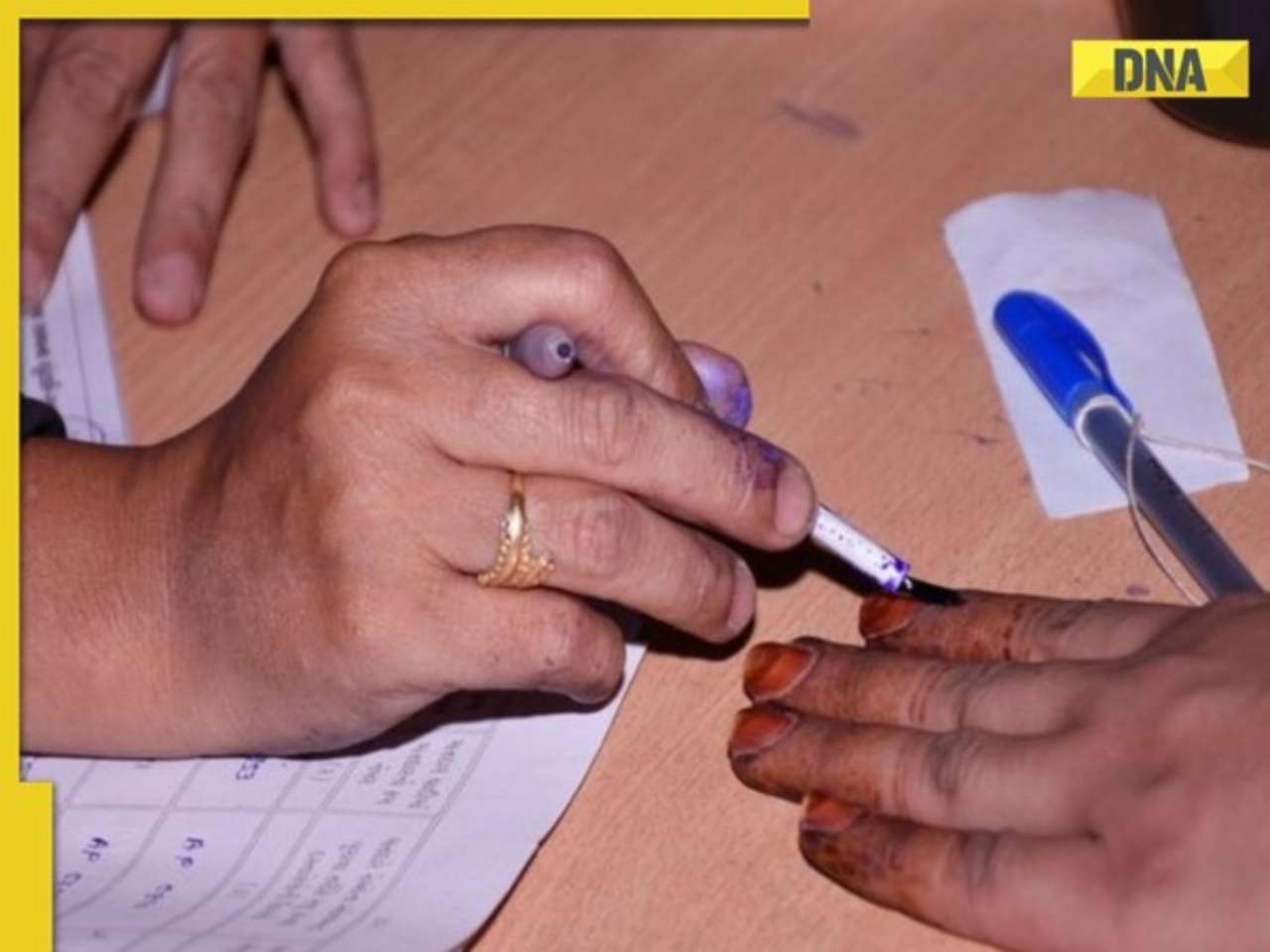







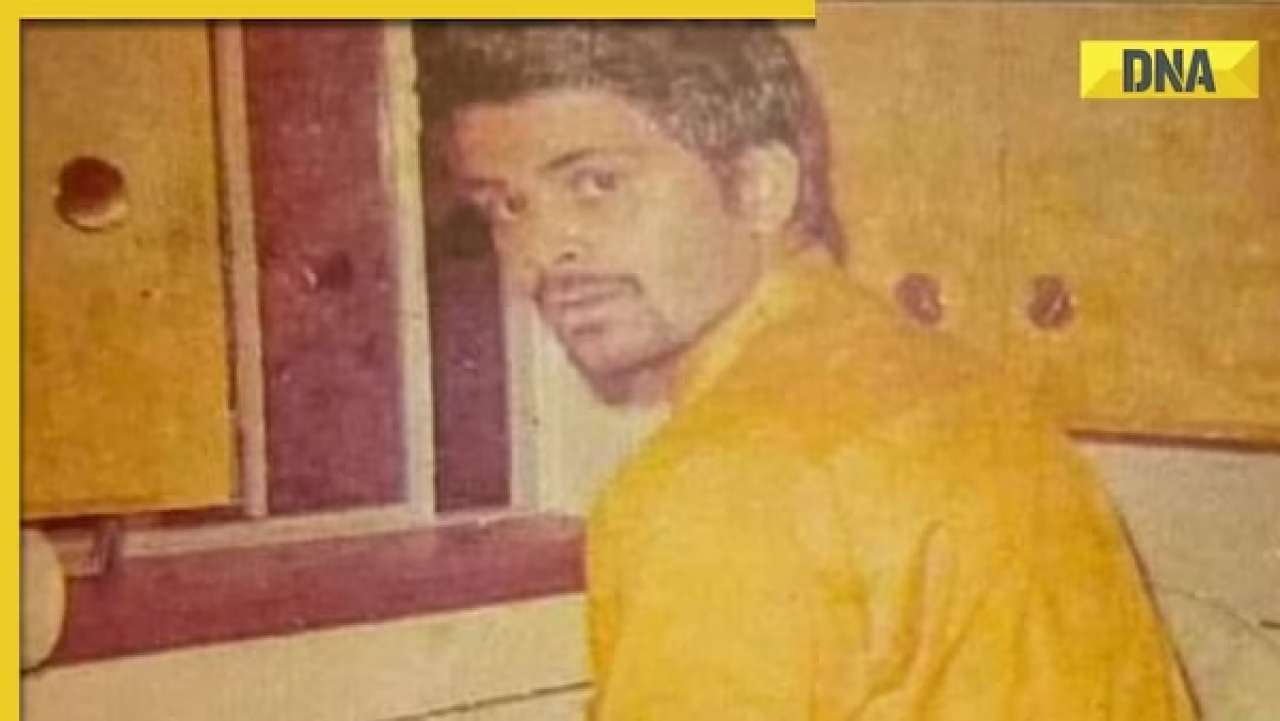





















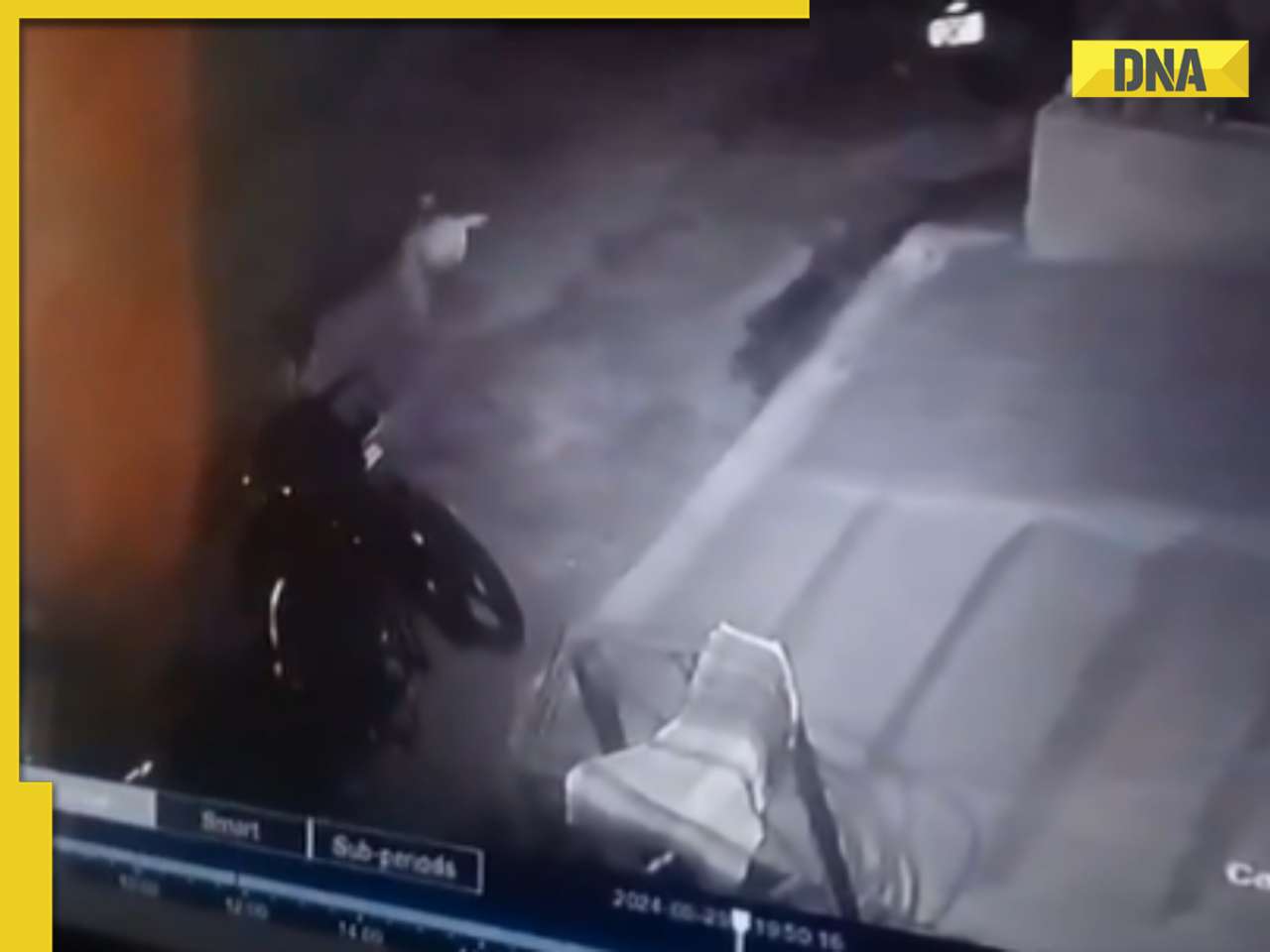







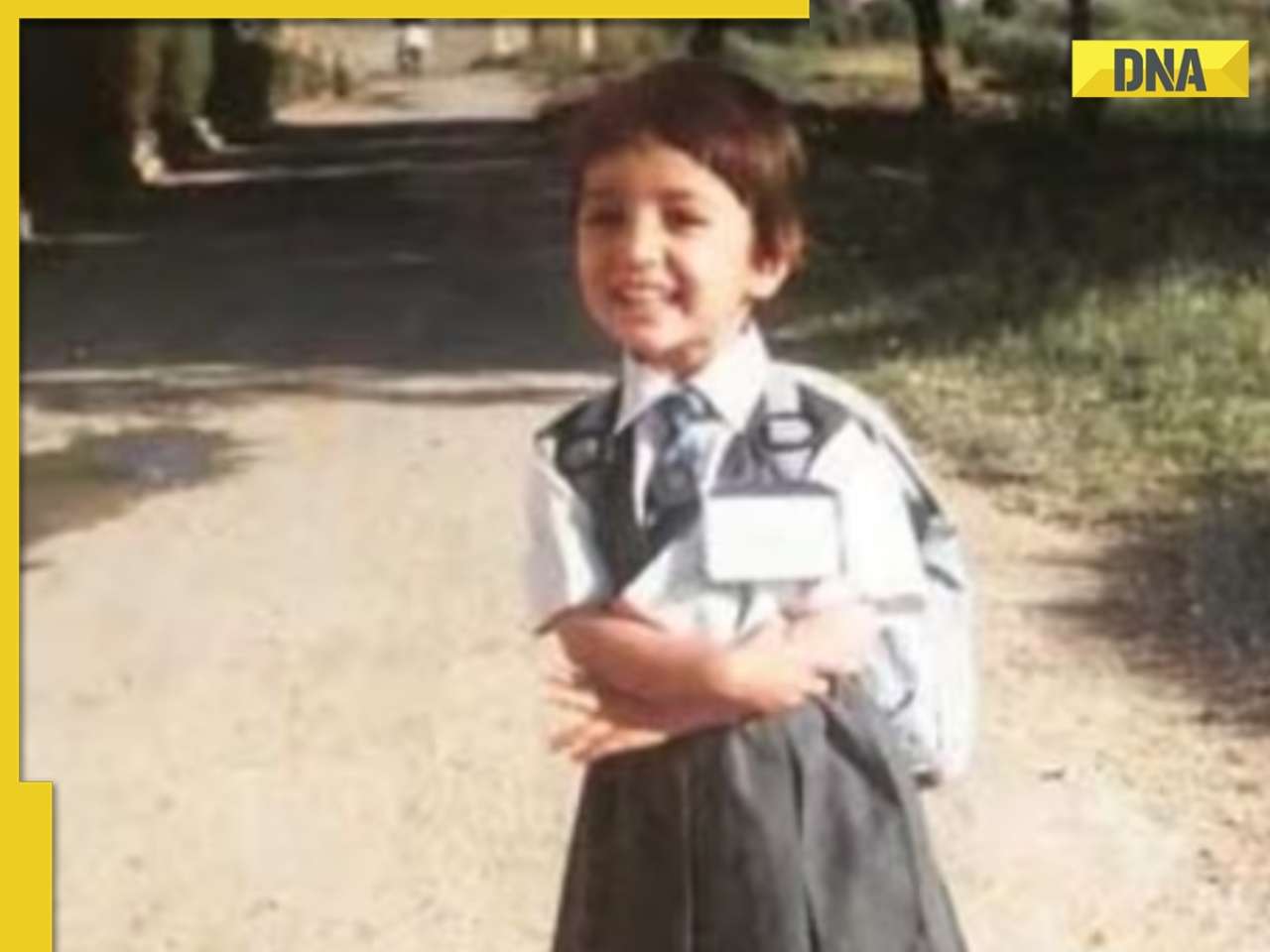



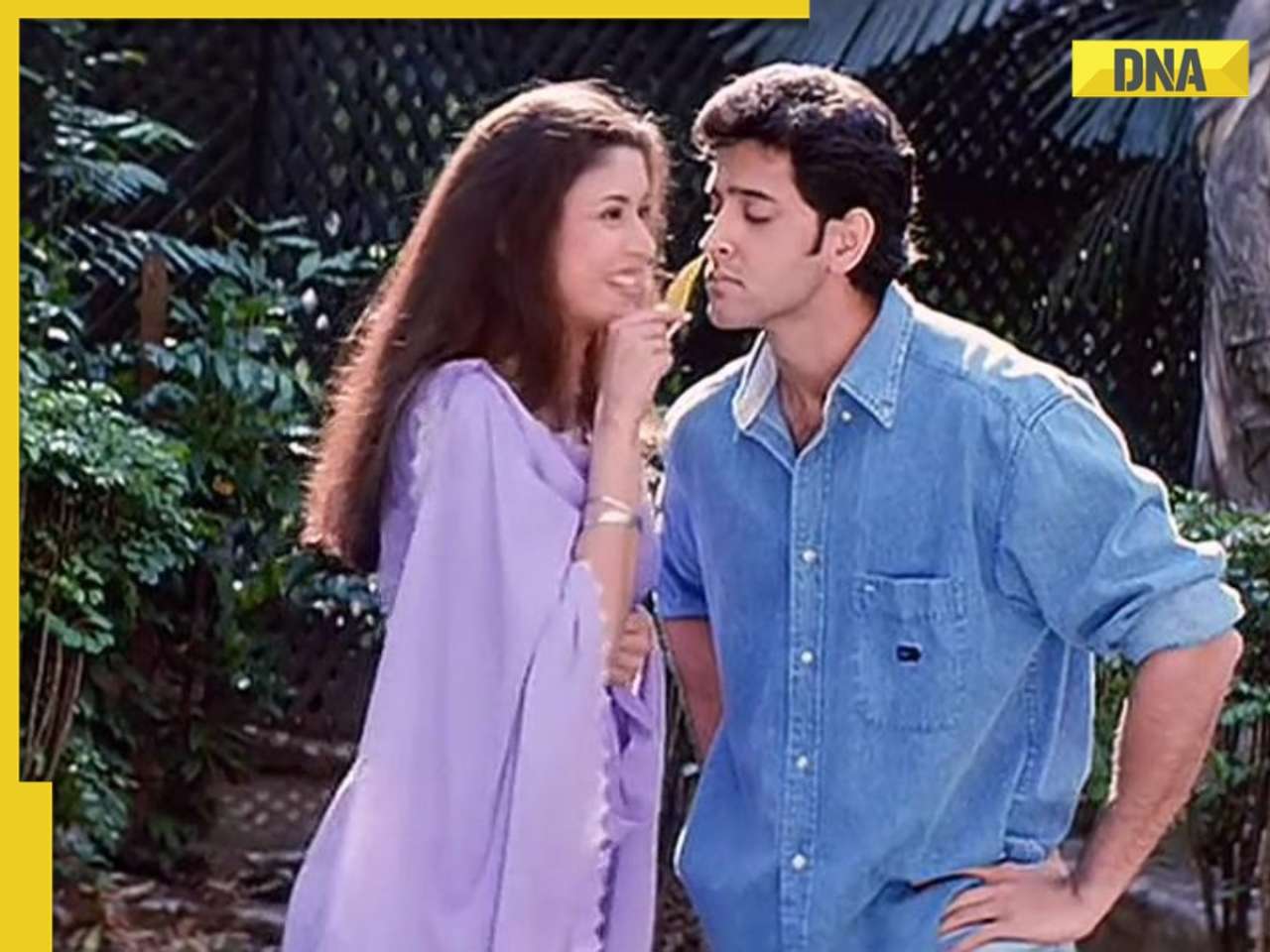





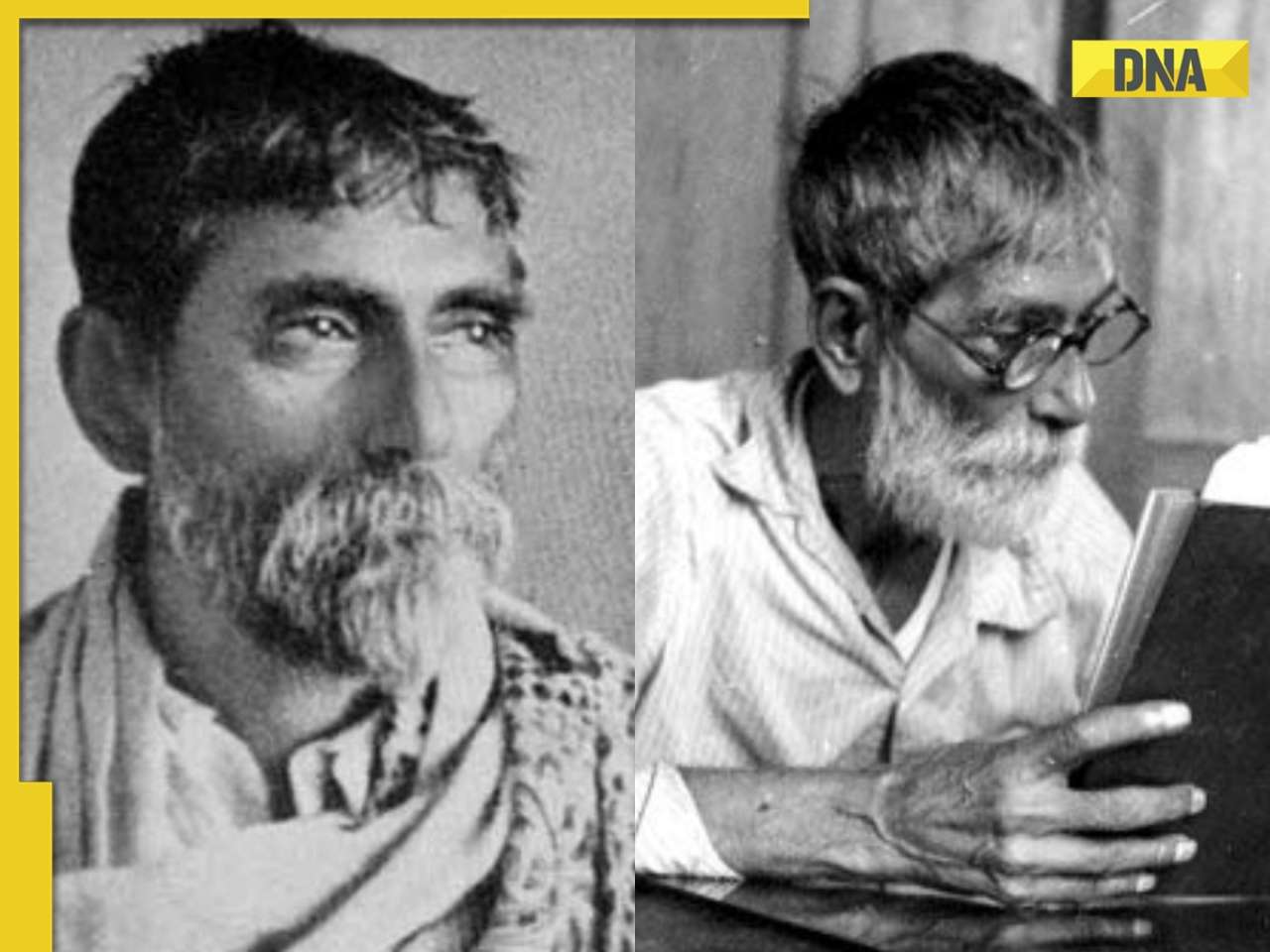




)
)
)
)
)
)